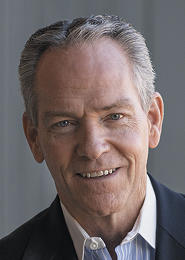- Home
- Media Kit
- MediaJet
- Current Issue
- Past Issues
- Ad Specs-Submission
- Reprints (PDF)
- Photo Specifications (PDF)
- Contact Us
- PRIVACY POLICY
- TERMS OF USE
![]()
ONLINE
![]()
ONLINE


John Fish
Building Relationships
Editors’ Note
John Fish is the Chairman, CEO and sole proprietor of Suffolk. Fish sits on numerous boards focused on improving the economy, strengthening business and creating jobs. He is Chair of the Board of Directors at the Real Estate Roundtable and serves on the Executive Committee of the Real Estate Board of New York. Fish is currently Chair of Brigham and Women’s Hospital and sits on Mass General Brigham’s Executive Committee. He also serves as Chairman of the Board at Boston College, the first non-alumnus to ever fulfill that role. Fish earned a bachelor’s degree in political science and government from Bowdoin College and has received honorary degrees from Curry College, Regis College, and Wentworth Institute of Technology.
Company Brief
Suffolk (suffolk.com) is a national enterprise that invests, innovates, and builds. Suffolk is an end-to-end business that adds value throughout the entire building life cycle by providing core construction management services along with additional vertical services that include real estate capital investment, design, self-perform construction services, technology start-up investment and innovation research/development. Suffolk, referred to as “America’s contractor,” has $5.5 billion in annual revenue, 2,600 employees and main offices in Boston (headquarters), New York, Miami, West Palm Beach, Tampa, Estero, Dallas, Los Angeles, San Francisco, and San Diego. Suffolk serves clients in every major industry sector, including life sciences, healthcare, K-12 and higher education, gaming, resorts, mission critical/data centers, transportation, airports and commercial. Suffolk is ranked #23 on the Engineering News Record list of “Top 400 Contractors.”

Suffolk client Seminole Hard Rock Hotel & Casino
Hollywood in South Florida
What have been the keys to Suffolk’s strength and leadership?
Suffolk is a reflection of my growth and maturity as an individual. When I first started the company right out of college, I didn’t know how to run a business or even manage a balance sheet. That immaturity was reflected in the way I managed the business – our culture and approach to managing projects and partners was all about “brawn over brains.” As I matured as a professional, I began to realize the value of building strong relationships. I understood if I wanted to grow the business for long-term success, I had to commit to building and strengthening relationships with people in the industry and our communities. People needed to believe in me and trust in the unique culture we were creating for our organization. Not surprisingly, the more effective I became at building relationships, the more growth the company experienced and the more authentic our organization became to our clients, partners, and even our own employees.
We started to see immediate results from our commitment to building relationships. Our number of repeat clients grew and we started to manage projects for those clients throughout the country. We followed existing clients to New York, Florida, Texas, California, and the Midwest, which allowed us to expand our business. The strength of our relationships and deep trust we were building with clients and partners were creating growth opportunities for us and helping us build our brand nationally.
How important is cultural fit when attracting talent for Suffolk?
I often tell people Suffolk has a cult-like culture. Our culture is based on our core values of passion, integrity, hard work, professionalism, and caring. We did not define these core values as part of a concerted campaign or marketing strategy. We “discovered” our core values – they were always part of our DNA. Our core values are the lens we use when evaluating and recruiting talent for our organization. To be honest, not everyone is the right fit for our unique corporate culture. But if you share our core values and are aligned with our goals and mission as an organization, you can build an enormously successful, long-term career at Suffolk.
Our core values are who we are and what we aspire to be. My role is to be the keeper of those values and I take that responsibility very seriously. Suffolk builds buildings, but we also build people. And to build people, we understand we need to create a great place for those people to work. This focus on culture is one of the factors that truly differentiates us from other companies.

Suffolk client Boston University
Center for Computing & Data Sciences
Was it challenging for you to have to give up some control as Suffolk has grown its size and geographic footprint?
This is one of the greatest challenges for founders, entrepreneurs, and leaders of any organization. I often say we are playing a game of inches, not a game of yards. It is critical for leaders to provide the vision for the organization at a high level, but to also have a pulse and understanding of what is happening throughout every level of the organization. It’s all about alignment. Leaders must ensure all their people, regardless of title or role, are shown respect, appreciation, support, and recognition for their work and their contributions to the organization. It is about the success of the team, not the individual.
How do you define the Suffolk difference?
Suffolk’s value proposition is defined by our people and unique toolbox of sophisticated technologies and processes. Construction is a people business. We make emotional connections with our clients and partners every day, but we also have an emotional connection with our own people through trust and transparency. I tell our people to bring their problems to work rather than leaving them at home. Everybody is dealing with their own challenges, so we need to make sure our people are working in an environment where they can bring their best selves to work with confidence and trust in their leaders and colleagues. A critical role of our organization is to provide support and peace of mind for our people, because in the end that approach helps them be the best they can be.
Again, this comes down to culture. There are three fundamental characteristics that create a positive work environment for our people:
1. No Fault Culture, which is about having empathy and compassion when a person makes a mistake;
2. No Jerk Policy, which means every one of us must care for each other and get along; and
3. Caring, because if you lead with a sense of caring and authenticity, it makes all the difference to your team and the entire organization. Throughout my entire career in the construction industry, I have found the most successful building construction projects are the ones that have had project teams with strong chemistry and a deep caring for one another.
Most people do not think of innovation when they think of construction. How is Suffolk planning to change that perception and what is Suffolk’s strategy for disrupting the industry?
I often say, “No two points in time are equal.” Construction has never been known for innovation. Today, the construction industry is facing a pivotal moment as productivity has declined, construction and labor costs are high, and development in certain sectors has slowed due to high interest rates and lack of available capital. To address these challenges, Suffolk leverages our core construction management expertise while also providing vertical services that add value throughout the entire lifecycle of a building.
Suffolk Capital is our real estate investment arm that invests side-by-side with developers, which positions us as a key investment stakeholder with “skin in the game” on projects and allows for more alignment between our team and our clients.
Our Suffolk Design team of experienced designers collaborates earlier with project architects in the design process to “fill gaps” in the design documents to ensure accuracy and completeness before construction begins, saving time and money during the construction process.
Our Liberty self-perform team provides construction services on our project sites, such as drywall, concrete, and heavy equipment so we can have more control of safety and quality on our jobsites.
And Suffolk Technologies, the technology capital investment arm of Suffolk, invests in tech startups and solutions that are transforming the built environment, and allows these startups to test their tools on Suffolk jobsites so they can make improvements to their solutions. By providing value throughout the entire building lifecycle and leveraging the power of technology and data, Suffolk is differentiating itself from other contractors and redefining what it means to be a builder.
How important is it for Suffolk to build a diverse and inclusive workforce?
Diversity, equity, and inclusion are fundamental to an organization’s success. Hiring a diverse workforce is the right thing to do, but it is also very good for business. Better business decisions are made when you have individuals with various backgrounds and points of view sitting around the table and sharing their opinions and ideas. A diverse workforce provides diversity of thought. Regardless of who you are or where you are from, your unique perspective is a valuable asset. We must have respect for these various points of view, maintain a sense of humility, and understand that we may not have all the answers ourselves. This is one of the most critical elements of strong leadership.
Where did you develop your passion for giving back to the community?
Suffolk has always been committed to giving back and being part of the fabric of the community. I often say, “To whom much is given, much is expected.” I believe we have a duty to give back to others who are less fortunate, because in the end we are all in this together.
No one succeeds without help, and we have all had our own personal and professional challenges to overcome. For example, I have severe dyslexia and could not spell or write for most of my childhood. This was a significant challenge for me because this learning difference wasn’t identified until I was a young man. My learning difference had a huge impact on me. I was not confident in myself or my abilities, which led to a sense of humility at a very young age. During prep school, I received lots of support from teachers and coaches who helped me build my confidence and realize my true strengths. I finally started to realize I had something special and unique to offer. I eventually developed my leadership skills and realized I had strengths others might not have, including understanding people, reading a room, communicating a vision, and motivating others to perform at their best. But even with that success, I never forget where I came from and I have always pulled for the underdogs.
This is why I have always been committed to causes that help young people at a disadvantage who simply need someone to believe in them, because I have been there myself. Sometimes all it takes to set someone on the path to success is some confidence, caring, and compassion.![]()